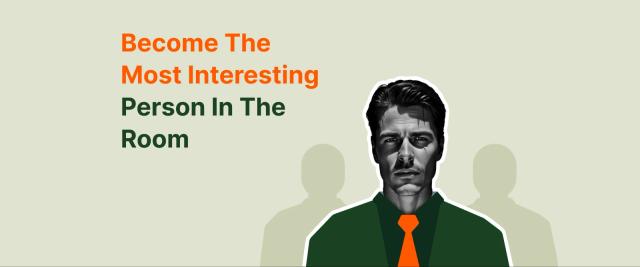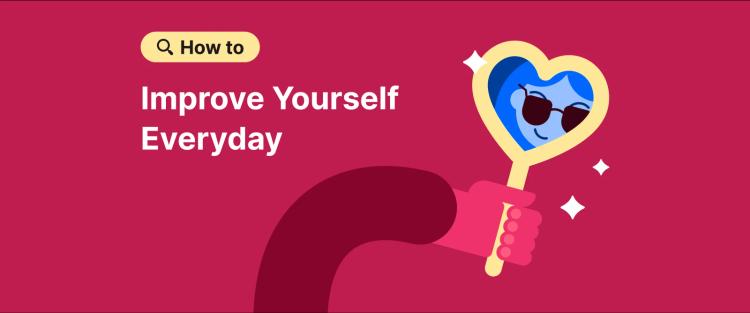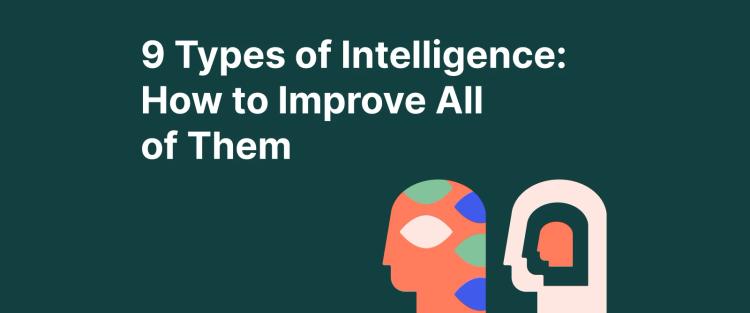Ever leave a conversation feeling like you said everything wrong, or realize hours later what you should have said?
If you want to know how to improve communication skills, work on four things: building confidence, understanding non-verbal cues, practicing active listening, and developing emotional intelligence. These matter in personal relationships, job interviews, team meetings, and regular conversations.
70% of employers say communication skills are the most important trait in new hires. Not polished presentations or perfect emails — making yourself clear when you talk, reading what people aren't saying, listening instead of planning your response.
This guide uses techniques from books like 'How to Talk to Anyone' and 'Cues.' Whether you're prepping for a job interview, leading people, or want better conversations, these work. Great communicators aren't born that way — they learn specific methods.
Communication skills need practice and repetition, and you can do that with Headway: The app offers 15-minute book summaries on conversation strategies, body language, and emotional intelligence, with spaced-repetition options.
📘 Download Headway and learn how to be clear when you speak and better at listening!
Quick answer: How to improve communication skills
Practice in front of a mirror twice a week. Maintain eye contact with yourself while talking. Work on standing straight and smiling. When you're with people, try subtly mirroring their body language — it makes conversations feel more natural.
Stop using filler words. Replace "um," "like," and "you know" with pauses. Watch your facial expressions, gestures, and tone — 65% of communication happens through body language, not words.
Actually listen. Focus on what the person is saying instead of thinking about your next sentence. Repeat back what you heard to confirm you understood. Ask questions that dig deeper into what they're talking about.
Step 1: Build confidence with a daily communication practice
Did you know that 86 % of workplace failures stem from communication issues? Poor communication style can be a decisive factor in job dismissals or rejections.

Effective communication relies on the topics discussed, our motivations for discussing them, how we interact, and how we express our attitudes toward one another.
But one thing is for sure: clear, confident communication contributes to a more productive, positive personal and work environment. Besides, companies like Microsoft emphasize communication as a core soft skill in leadership training and team development programs.
Many people wrestle with low self-esteem as a psychological barrier. Contrary to popular belief, confidence isn't innate — it's often built over years of dedicated work, open-minded thinking, and beneficial habits. Building self-confidence requires desire, persistence, systematic effort, and, most importantly, action.
"Just give 'em great posture, a heads-up look, a confident smile, and a direct gaze - that's the ideal image for somebody who's a somebody." ― Leil Lowndes, 'How to Talk to Anyone'
There's a powerful technique for tracking achievements and identifying your personal success strategy to become more confident. By recording and analyzing your communication successes and failures, you gain valuable experience that helps you confidently convey thoughts and arguments in future interactions.
Start by practicing eye contact alone or with people you're comfortable with. Go to the mirror and start a conversation with yourself, maintaining eye contact with your reflection. Don't do it mindlessly; immerse yourself in the process. Practicing this technique twice weekly is a great start to achieving results.
Mirroring someone creates a sense of mutual understanding, making the other person more comfortable around you. It's a nonverbal way of saying, "I'm like you, and I understand you." It can also build stronger connections while making you feel more confident and attractive.
"When you act as though you like someone, you start to really like them."― Leil Lowndes, 'How to Talk to Anyone'
Above all, believe in yourself. After all, the most effective way to appear confident is to genuinely believe in your own worth. Body language methods won't work without believing in your values and abilities. When you truly value yourself, confidence radiates naturally and shows in your body language — you stand straighter and speak more assertively. Remember, confidence starts from within, and when you believe in yourself, others will too.
"When you try to be the same as everyone else, it's boring. When you try to fit into a mold, you become forgettable. When you try to be "normal," you become dull. Just be yourself, because no one is like you. If you're a little weird, own it. The right people will like you for it." – Vanessa Van Edwards, 'Captivate'
📘 Headway covers conversation strategies and communication techniques. Download it today.
Step 2: Improve verbal and non-verbal communication skills
Communication is essential in every aspect of daily life — from purchasing goods and services to negotiating with partners and sharing moments with friends. Poor communication skills can make life difficult for personal relationships and professional development. There are several types of communication you engage in daily: verbal, non-verbal, written, and visual. Mastering each helps ensure your message lands effectively.
The key to better communication
To avoid miscommunications, make your point clear, add context, and then deliver your key ideas. Use simple spoken words and avoid idioms, phrasal verbs, and slang — this will help you succeed.
When speaking, be mindful of filler words in English. These words or sounds are often used to fill awkward pauses when thinking about what to say next.
"The overuse of filler words such as 'um,' 'uh,' 'you know,' and 'like' can weaken the delivery of your message and diminish your credibility. Becoming aware of these habits and consciously replacing them with pauses will help you speak with more authority and clarity." – Bento C. Leal III, '4 Essential Keys to Effective Communication'
For example, frequent use of "like" can make speech confusing and less clear. Without this word, sentences become more precise and easier for listeners to understand.
Nonverbal cues
In communication psychology, understanding and interpreting nonverbal signals and body language play an important role. Good communication skills and presentation skills help improve interpersonal communication, enhance perception, and develop emotional intelligence.
"People form impressions of you in the first few seconds based on how you move, your posture, and your expressions." – Vanessa Van Edwards, 'Cues'

Remarkably, about 65% of communication is nonverbal. Your body language — facial expressions, gestures, posture, tone of voice, and movements — creates an immediate impression on others. Your body constantly sends signals that reveal your emotional state, whether you're feeling nervous, uncomfortable, frightened, or in need of support.
"A charismatic tone can make you appear more confident and trustworthy, while a flat tone can turn off your listener." – Vanessa Van Edwards, 'Cues'
Pay close attention to your feelings when you communicate with someone. For example, if you notice yourself avoiding eye contact during stressful situations, focus on that next time and make eye contact.
"Your eyes are personal grenades that have the power to detonate people's emotions." – Leil Lowndes, 'How to Talk to Anyone'
Step 3: Practice active listening to deepen understanding
Listening and asking questions are fundamental skills for improving interpersonal communication. Strong listening skills help people understand and connect with others, making it easier to maintain a positive attitude and show interest and respect for others' thoughts and feelings. Strong communication is a two-way street.
"Grow more by listening than talking." – Leil Lowndes, 'How to Talk to Anyone'
Active listening involves more than just hearing words — it requires your physical presence in the conversation, careful attention to information, detection of the other person's emotional state, and recognition of their nonverbal communication cues. It requires us to be focused, tolerant, and open to other points of view.

"Listening is really a very active act. It's not simply where you throw the words (active)." – Bento C. Leal III, '4 Essential Keys to Effective Communication'
Your ability to ask meaningful questions helps to drive conversations and reveal the depth of the topic. To succeed in active listening, expand your vocabulary for better paraphrasing, learn to clarify effectively, ask questions, identify and summarize critical points, express empathy, and use encouraging phrases.
"Never be left speechless again. Like a parrot, simply repeat the last few words your conversation partner says. That puts the ball right back in his or her court, and then all you need to do is listen." – Leil Lowndes, 'How to Talk to Anyone'
When practicing active listening, focus on the speaker and show genuine interest through nonverbal cues and body language. Being observant helps you notice the other person's nonverbal cues to their feelings. After a meaningful conversation, a well-timed follow-up — like a thank-you message or a summary email — shows that you value the interaction and strengthens the relationship.
You can express interest by asking thoughtful questions and showing curiosity about their perspective. When you acknowledge others' feelings and demonstrate understanding by seeing situations from their viewpoint, you create a supportive environment that encourages open communication.
📘 Get Headway and learn how great communicators handle job interviews and difficult conversations.
Step 4: Build empathy and emotional intelligence
Communication is always about contact from both sides and understanding each other verbally and emotionally. That is why empathy should be developed, as it's the ability to understand another person's feelings and express care for them.

Why emotional intelligence improves every interaction
Empathy fosters closeness, establishes trust, and strengthens relationships. By developing your interpersonal skills, you become better at recognizing others' emotional states, thoughts, and actions. Using empathy and compassion in your communications can help you connect more deeply with others, build stronger relationships, and become more polite, tolerant, and considerate of others' needs. Empathy is also critical for effective teamwork, helping you understand group dynamics and support them meaningfully.
"Next to physical survival, the greatest need of a human being is psychological survival – to be understood, to be affirmed, to be validated, to be appreciated. – Stephen Covey." — Vanessa Van Edwards, 'Captivate'
Emotional intelligence became recognized when it became evident that success in both work and personal life relies more on the ability to foster relationships with others than on hard skills. Emotional intelligence is the ability to understand, realize, and manage your own emotions, motivations, thoughts, and behaviors, while sharing information, exchanging thoughts, and responding to others' emotional states. At the same time, it helps you understand other people better and feel their needs, motives, and behaviors.
"Empathy, the ability—a developed skill, actually—to vicariously put yourself in another person's shoes and try to see from their point of view, their world, their perspective." – Bento C. Leal III, '4 Essential Keys to Effective Communication'
Tap into your emotional superpower: Self-awareness
Self-awareness helps you understand your emotions, character, and moods. It helps you view yourself from the outside, anticipate your feelings, develop intuition, and be emotionally flexible. To develop emotional competence, enrich your emotional vocabulary, practice naming your feelings, read books on emotional intelligence, and explore the meanings of certain emotions.
"To effectively communicate, we must be aware not only of what we are saying but also of how we are feeling while we say it. Emotional self-awareness is key to managing our responses and connecting with others." – Leil Lowndes, 'How to Talk to Anyone'
A low level of emotional intelligence has a negative impact. Learning to identify and manage your emotions is essential to maintaining your quality of life, overcoming obstacles effectively, and achieving genuine happiness.
Track your feelings and emotions

Keep a diary of your emotions and feelings to analyze your daily experiences and their triggers. Practice using "I feel..." statements and listen to how you feel in the moment. Learn to ask yourself, "What do I feel now?" "What is my need now?" Try to reveal your feelings through your own thoughts.
"Being aware of your own strengths and weaknesses, and knowing when to hold back or assert yourself, makes you far more approachable." – Leil Lowndes, 'How to Talk to Anyone'
📘 Get Headway and read book summaries on active listening, body language, and emotional intelligence.
Speak with confidence in any situation: Advice
Scientists have found that people are more likely to believe a confident person without credentials than an experienced specialist who shows doubt. Research by Don Moore of Carnegie Mellon University in Pennsylvania shows that we prefer to receive advice from someone we trust. And so much so that many are ready to forgive their bad reputation and previous miscalculations.

"Visualize yourself as a confident person; this mental picture will help you naturally radiate confidence." – Leil Lowndes, 'How to Talk to Anyone'
We feel anxiety because we imagine our complete failure. Therefore, push your fears aside and approach the person boldly. Make sure the person is free and not occupied with urgent matters. Engage the person you wish to speak to with a warm smile and friendly opener.
Seeking more knowledge? Check out these articles and find out how to:

Improve your communication skills with Headway!
The strategies shared in this article are just the beginning. To build effective communication skills, explore the rich insights from 'How to Talk to Anyone,' 'Cues,' and '4 Essential Keys to Effective Communication.' For a quick and powerful way to gain valuable insights, visit the book summaries on the Headway app.
Headway is an excellent tool for ambitious learners who value their time. While plenty of helpful personal development books are available nowadays, finding time to read them all can be a challenge.
With Headway's abundant library, you can listen to or read book summaries and get the fundamental ideas of a book in just 15 minutes. Check more book summaries on conversation and communication skills in the Headway library to help you grow professionally and personally.
📘 Download Headway and learn communication skills from experts in 15-minute summaries!
Frequently asked questions about how to improve communication skills
What are 5 basic communication skills?
The five basic communication skills are listening, speaking, nonverbal communication, emotional regulation, and constructive feedback. These critical skills are essential for effective communication in both personal and professional settings.
What are the 4 elements necessary for successful communication?
The four elements of successful communication are the sender, the message, the medium, and the receiver. Clear communication depends on how well each component functions to deliver and interpret the message accurately.
What are the 3 main barriers of communication?
The three main barriers to communication are physical barriers (such as noise or distance), psychological barriers (like stress or low self-esteem), and language barriers (including jargon or poor vocabulary). Overcoming these barriers improves clarity and understanding.
What are the 5 C's of communication?
The 5 C’s of communication are clarity, conciseness, correctness, courtesy, and completeness. These principles ensure that your message is easy to understand, respectful, accurate, and leaves no essential information out.
What are the 5 A's of communication?
The 5 A’s of communication are acknowledge, ask, assess, advise, and assist. This framework supports active listening, thoughtful responses, and clear, empathetic interactions in both personal and professional conversations.










